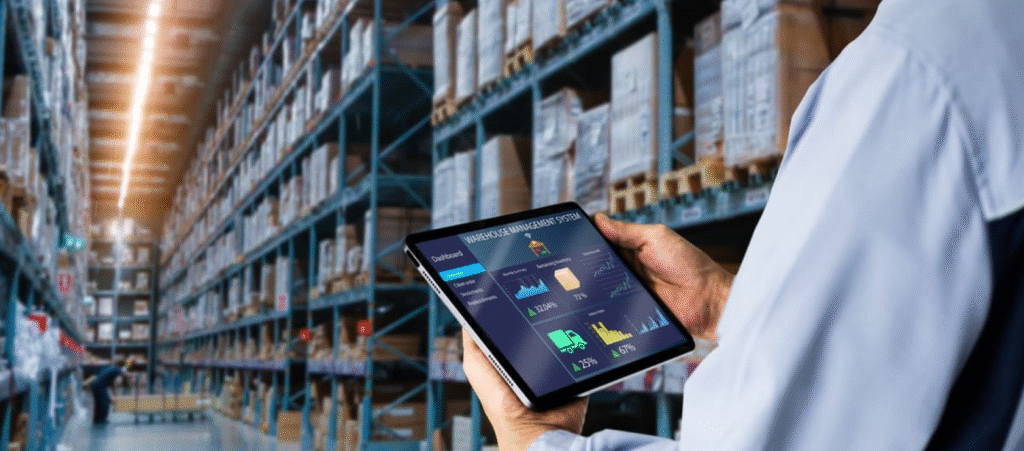Managing inventory effectively is one of the most critical aspects of running a successful business. Whether you operate a retail store, eCommerce platform, or a large warehouse, keeping track of stock levels, purchase orders, and product movement ensures smooth operations and higher profitability. This is where a track inventory app or advanced inventory software becomes indispensable.
In this guide, we’ll explore why inventory management tools are essential, what features you should look for, and how to choose the right solution for your business.
Why Businesses Need Inventory Management
Inventory is more than just products on shelves. It represents capital, customer satisfaction, and growth potential. Without proper systems in place, businesses often struggle with:
Overstocking, which ties up cash flow
Stockouts, leading to missed sales opportunities
Human errors in manual counting
Difficulty in tracking sales and returns
Inefficient order management
By adopting a track inventory app or robust inventory software, businesses can automate tasks, improve accuracy, and make data-driven decisions.
What is a Track Inventory App?
A track inventory app is a mobile or web-based application that helps businesses monitor, record, and manage their stock in real time. Unlike manual spreadsheets, these apps offer advanced features such as:
Barcode or QR code scanning
Real-time stock level updates
Notifications for low inventory
Cloud synchronization across devices
Integration with eCommerce platforms and POS systems
Such apps are ideal for small to medium-sized businesses that need flexibility and mobility in managing their inventory.
What is Inventory Software?
While an inventory app is lightweight and mobile-friendly, inventory software is a more comprehensive solution. It typically includes desktop, cloud, and mobile platforms, offering advanced features such as:
Multi-warehouse management
Supplier and vendor tracking
Purchase order automation
Analytics and forecasting tools
Integration with ERP and accounting systems
This makes inventory software an excellent choice for medium to large enterprises with complex supply chains.
Benefits of Using a Track Inventory App
Implementing an inventory app offers several benefits for businesses of all sizes:
1. Real-Time Tracking
You can check stock levels instantly, reducing the chances of running out of popular products.
2. Increased Accuracy
Barcode scanning eliminates human errors in manual entry.
3. Cost Savings
By avoiding overstocking and stockouts, businesses can save money and optimize cash flow.
4. Improved Productivity
Employees spend less time on manual counts and more time on customer service.
5. Cloud Access
Most apps are cloud-based, ensuring data is available anytime, anywhere.
Benefits of Inventory Software
For businesses that need more advanced features, inventory software provides:
1. Multi-Location Management
Track stock across different warehouses, stores, or outlets.
2. Demand Forecasting
Use historical sales data to predict future inventory needs.
3. Supplier Relationship Management
Easily create purchase orders, track shipments, and monitor supplier performance.
4. Detailed Reporting
Generate sales, revenue, and stock movement reports to improve business decisions.
5. Integration with Other Tools
Connect with POS, eCommerce platforms, CRM, and accounting software for seamless workflows.
Track Inventory App vs. Inventory Software
| Feature | Track Inventory App | Inventory Software |
|---|---|---|
| Platform | Mobile/Web | Desktop/Cloud/Mobile |
| Best for | Small-Medium Businesses | Medium-Large Enterprises |
| Core Features | Stock tracking, alerts, scanning | Multi-warehouse, forecasting, reporting |
| Ease of Use | Very user-friendly | More complex, feature-rich |
| Cost | Affordable/Subscription | Higher investment |
Key Features to Look For
When choosing between a track inventory app or inventory software, ensure the solution offers:
1. Barcode/QR Code Scanning
Faster and error-free product entry.
2. Low Stock Alerts
Automatic notifications prevent stockouts.
3. Multi-Device Access
Sync inventory data across computers, tablets, and smartphones.
4. Integrations
Compatibility with platforms like Shopify, WooCommerce, QuickBooks, or Amazon.
5. Reporting Tools
Custom reports to track sales trends, top products, and financial performance.
Popular Track Inventory Apps
Some of the best inventory apps for small businesses include:
Sortly – Known for its simplicity and QR code scanning.
Zoho Inventory – Offers multi-channel selling and order management.
inFlow Inventory – A feature-rich app suitable for small to mid-sized businesses.
Stock Control – Great for retail stores and on-the-go tracking.
Popular Inventory Software
For larger operations, these software solutions stand out:
NetSuite ERP – A comprehensive tool for enterprise-level businesses.
TradeGecko (QuickBooks Commerce) – Perfect for multi-channel eCommerce sellers.
SAP Inventory Management – Robust system for supply chain management.
Odoo – Open-source ERP with inventory modules.
How to Choose the Right Solution
When deciding between a track inventory app and inventory software, consider these factors:
Business Size – Apps are better for small businesses, while software suits larger ones.
Budget – Apps are more affordable, while software requires higher investment.
Complexity of Operations – If you manage multiple warehouses, software is essential.
Integration Needs – Choose based on compatibility with existing business tools.
Scalability – Ensure the solution grows with your business.
Future of Inventory Management
With advancements in technology, inventory management is evolving rapidly. Artificial intelligence (AI), machine learning, and IoT (Internet of Things) are becoming integral parts of inventory systems. Soon, businesses will rely on smart sensors, automated restocking, and predictive analytics to optimize operations even further.
Conclusion
In today’s competitive market, businesses cannot afford to rely on manual inventory processes. Choosing the right track inventory app or inventory software ensures efficiency, accuracy, and profitability.
For small businesses: Mobile apps provide flexibility and affordability.
For larger businesses: Advanced software offers scalability and powerful analytics.
Ultimately, the right solution depends on your business size, budget, and operational complexity. By investing in the right tool today, you set your business up for long-term growth and success.


